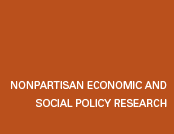 Featured Links
Featured Links
Related Policy Centers
Related UI Researchers
Publications on International Issues
| Viewing 1-5 of 365. Most recent posts listed first. | Next Page >> |
Foreign Aid: Essential to Security, but Money Alone Is Not Enough: IDG Working Paper (Series/IDG Working Paper)As President Obama and the 111th Congress prepare to assume office, Urban Institute (UI) experts offer their advice on evidence-based policymaking and the policy issues facing the country. Charles Cadwell, Director of UI’s Center on International Development and Governance (IDG) argues that foreign aid and a renewed emphasis on international development are essential to national security and international stability, but that money alone will not achieve the desired policy outcomes. Policies and institutions, not resources, pose the greatest constraints and require the most work ahead.
| Posted to Web: May 14, 2009 | Publication Date: January 11, 2009 |
Local Government Revenue, Land Use, and Economic Development Policies in Serbia: The Case of Nis: IDG Working Paper (Series/IDG Working Paper)The purpose of this note is to help both local and national government officials think through possible strategies for addressing one of the fundamental issues facing Serbian municipalities today: How do Serbian local governments increase the revenues they need to improve their public infrastructure while simultaneously creating an environment favorable to private investment and local economic development? This is a dilemma that local governments face throughout the world but which is particularly pressing in many developing and transition countries where local governments must address huge deficits in urban infrastructure without at the same time over taxing their business communities upon which their future growth depends. It is also of particular importance in Nis, the third largest city in Serbia and the economic engine of the southern and least developed part of the country.
| Posted to Web: May 14, 2009 | Publication Date: March 01, 2009 |
What Determines the Quality of Local Financial Management? The Case of Tanzania: IDG Working Paper (Series/IDG Working Paper)For the public sector to deliver public services and achieve its policy objectives, it is critical that public finances are managed well. Critics of decentralization point out that local governments are often administratively weak, and that poor local financial management can negate the potential benefits from decentralization. While the available research suggests that local financial management outcomes are influenced by more than a local government’s financial management practices, little is known in the literature about the determinants of effective local financial management in developing and transition economies. The empirical analysis in this paper uses data for local government authorities in Tanzania in order to explore the relationship between local financial management performance on one hand, and local management practices, local governance, and other local characteristics on the other hand.
| Posted to Web: May 14, 2009 | Publication Date: February 01, 2009 |
First Tuesday: Democracy and Security in Pakistan: The Ground Game (Audio Podcasts / First Tuesdays)Local governments sit at the confluence of formal and informal governance systems in Pakistan. Law and order, service delivery, and citizen interaction with the state take place in villages, towns, and cities, where families, tribes, political parties, religious organizations, and government officials share dominion. In 2001, then-President Pervez Musharraf called for the creation of local governments better attuned to citizen preferences and adept at providing improved services. Today, this autonomy initiative is up for grabs as Pakistan’s provinces reconsider the role of local government and the nation readies for fall elections.
| Posted to Web: May 07, 2009 | Publication Date: May 05, 2009 |
Aid Effectiveness in the Infrastructure Sector: Final Report (Research Report)In response to the challenges posed by the Millennium Development Goals, the key stakeholders in international development set out a new agenda to improve the effectiveness of aid. This agenda, embodied in the Paris Declaration on Aid Effectiveness, articulates a series of commitments reflected by the following tenets: ownership, alignment, harmonization, managing for results, and mutual accountability. The goal of this study was to identify lessons learned from the application of the Paris Declaration tenets in the infrastructure sector and, specifically, to determine whether the unique characteristics of this sector result in unique challenges and opportunities for implementing the tenets. This report, submitted to the Steering Committee by The Urban Institute, presents detailed findings on the Study on Aid Effectiveness in the Infrastructure Sector.
| Posted to Web: March 16, 2009 | Publication Date: January 01, 2009 |

